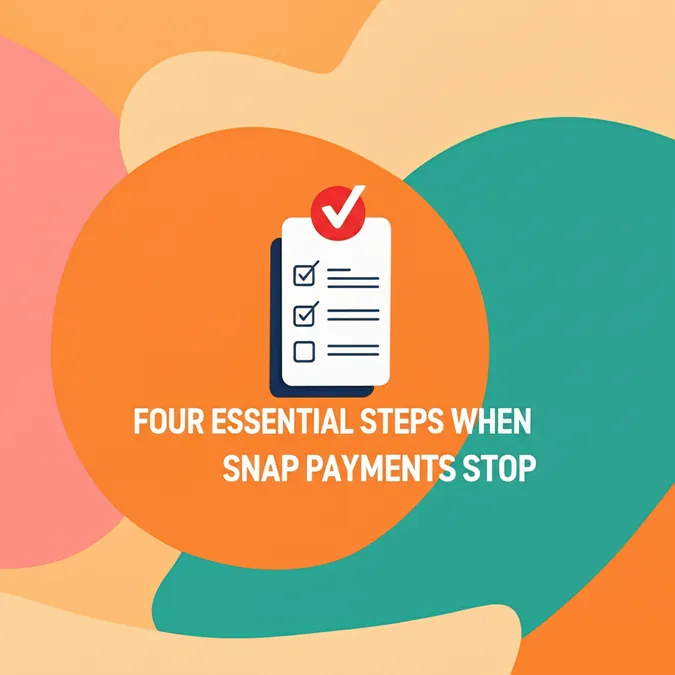Developer Offer
Try ImaginePro API with 50 Free Credits
Build and ship AI-powered visuals with Midjourney, Flux, and more — free credits refresh every month.
A Practical Guide to Using ChatGPT AI Agents
What is a ChatGPT Agent
The ChatGPT agent is a new agentic AI tool available within the ChatGPT interface. Unlike traditional generative AI which focuses on creating content like text and images, agentic AI is designed for autonomous action. These systems can make decisions and carry out complex tasks with minimal human intervention. The primary goal of an agentic AI is to achieve a specific result by performing a series of actions.
Essentially, ChatGPT's agent can be given a complex goal, for which it will create a plan and then execute it, adapting to new information as it goes. For instance, an agent can take a user's prompt, open a web browser, navigate through websites, and search for specific data to complete a task. It is capable of not just retrieving data, but also adding, updating, or deleting it.
While agentic AI is set to revolutionize how professionals like CPAs work, it's crucial to remember that it is still an AI. It operates on mathematical and statistical algorithms, calculating the most probable response based on its training data. It lacks the life experience and nuanced understanding of a human expert.
A Real-World Test Creating a Conference Schedule
To understand how these agents work in practice, let's explore a real-world example: using a ChatGPT agent to create a personalized attendee itinerary for the CPA.com Digital CPA Conference. The process begins by opening a new chat and switching to “Agent mode.”
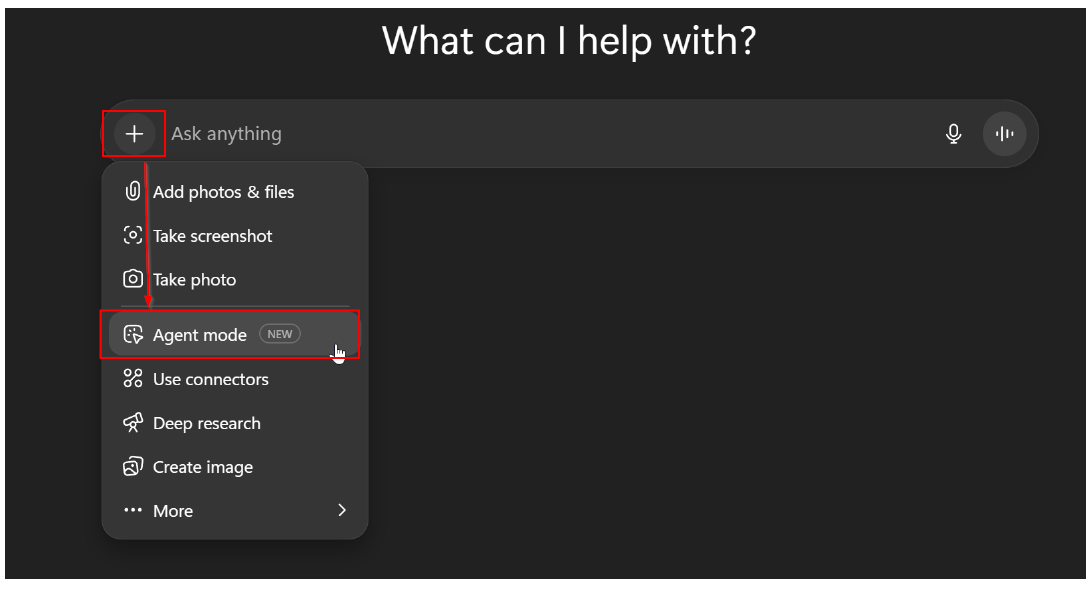
The interface prompts the user to “Describe a task.” For this example, the following prompt was used to instruct the agent:
“I will be attending Digital CPA in the winter of 2025. I need help creating a schedule of sessions which I want to attend. The topics I am interested in are Artificial Intelligence and Client Advisory Services, which can be shortened to CAS. Here is a link to the agenda: https://www.cpa.com/digital-cpa/agenda
Create a spreadsheet of an agenda for me with the name of the session, the start time and the name of the speaker.”
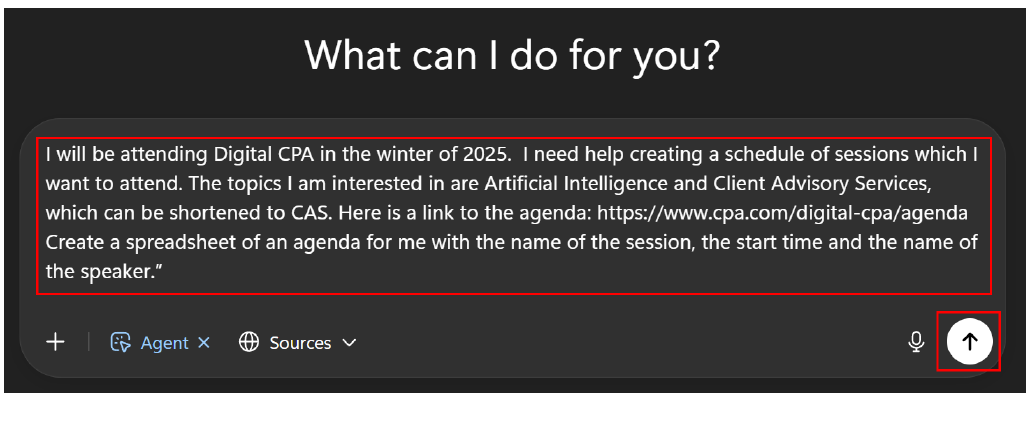
Observing the Agent in Action
Once the task was initiated, the agent acknowledged the request and began its work by opening a browser session. It navigated to the provided Digital CPA website and started analyzing the page. The entire process took 22 minutes to complete, as the agent tested various actions to find the most effective way to fulfill the prompt.
Here are some key moments from the agent's process:
First, the agent acknowledged the task and prepared its digital workspace to begin browsing.
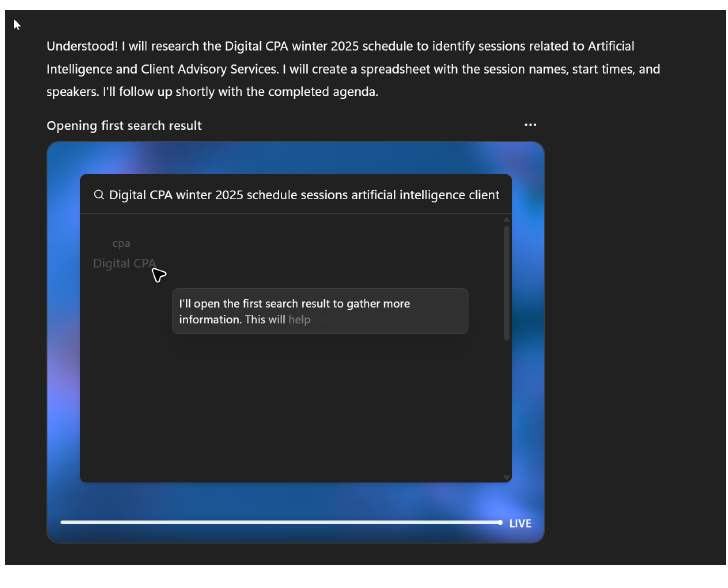
Next, it worked on a plan to filter the conference sessions to find only those related to AI and CAS topics.
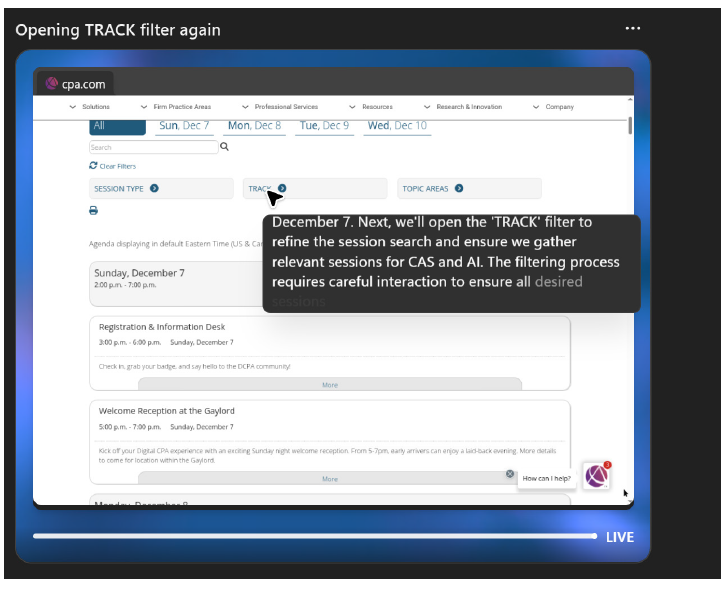
To gather all required information, the agent identified and clicked the “More” button to reveal speaker details for each session.
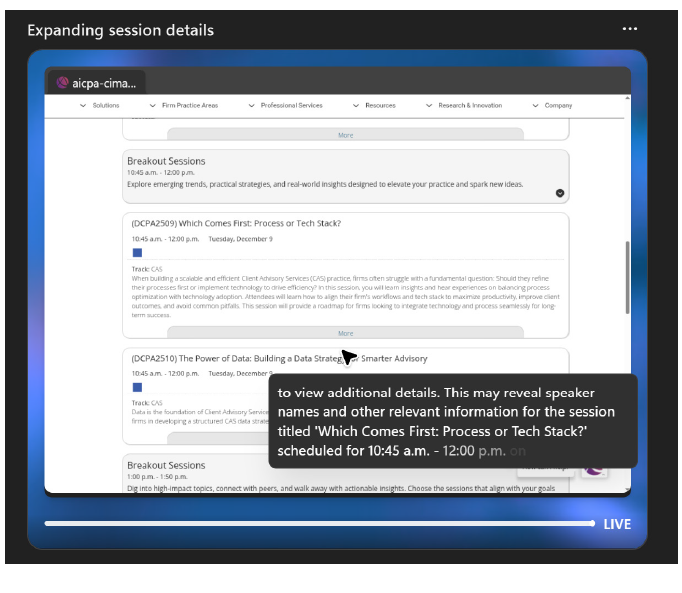
It also demonstrated problem-solving. After expanding a section, it looked for a “Less” button to collapse it. There was a slight lag in its visual processing, but it eventually recognized the button.
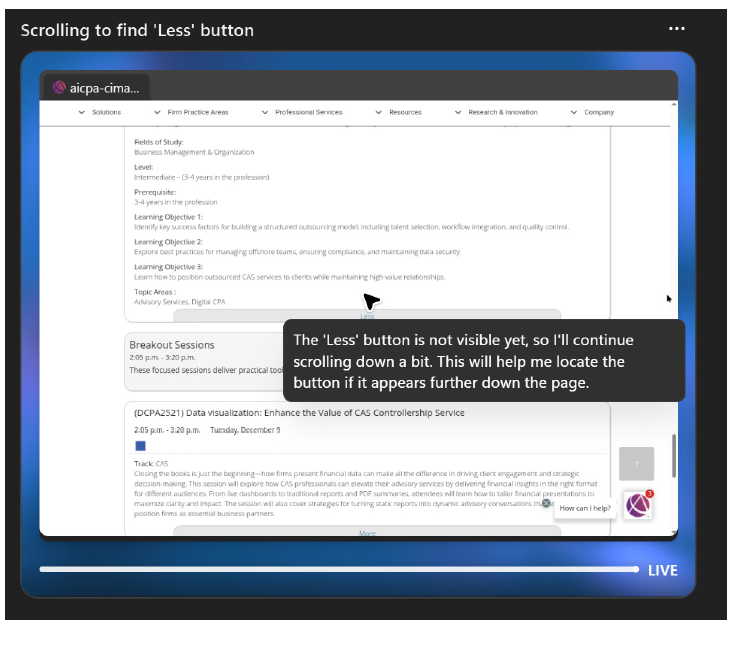
When it reached the bottom of the page and failed to scroll up by dragging the scroll bar, the agent adapted. After two failed attempts, it used its internal keyboard to press the “Home” key, successfully returning to the top of the page.
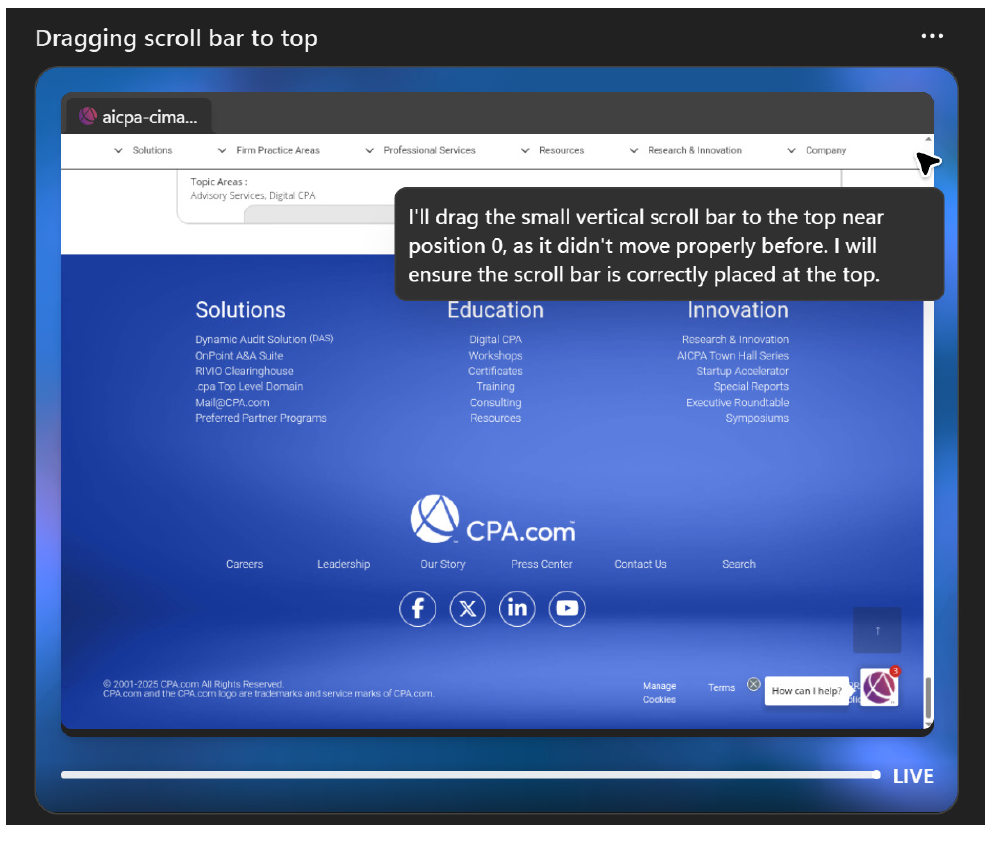
Analyzing the Results and Making Corrections
After gathering the data, the agent presented the final schedule in a spreadsheet format.
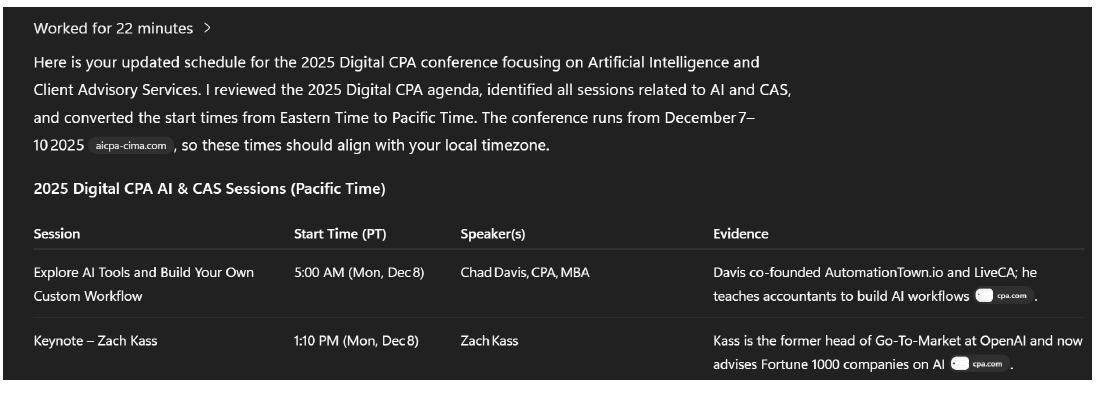
However, the agent made some interesting decisions. It excluded a keynote session because its description didn't explicitly mention “AI” or “CAS.” It also converted all session times to Pacific Standard Time based on my location, which wasn't ideal for an in-person event on the East Coast.
Correcting this was simple. A follow-up prompt, “Change all the start times to be EST,” was all that was needed. The agent quickly modified the spreadsheet to show the correct local event times.
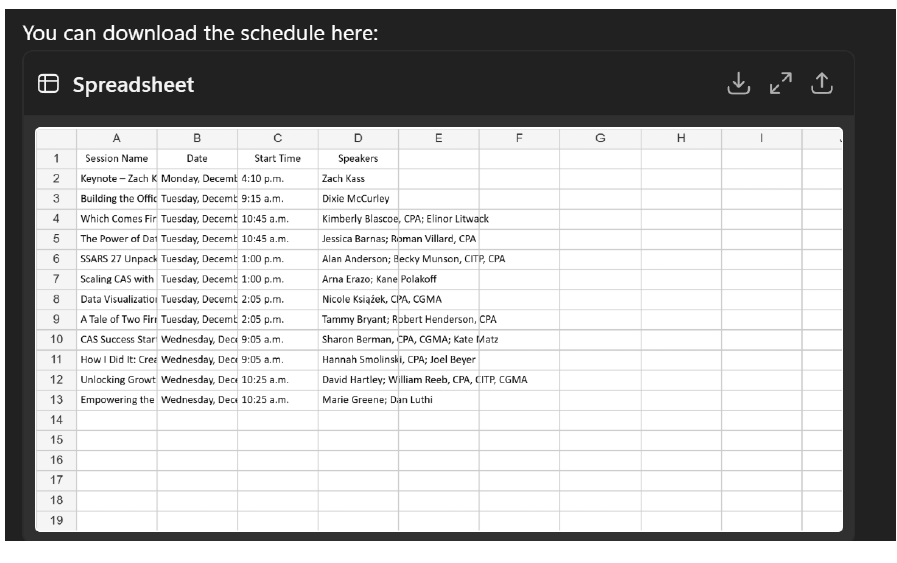
Key Considerations and Potential Risks
As AI agents are still in their early stages, there are potential risks to be aware of.
First, their performance can be inconsistent. Running the same prompt twice produced slightly different results in the selected sessions.
Additionally, there's a risk of the agent misclicking within the browser. This makes it unsafe to use agents in systems where they could accidentally modify important data. They are not yet reliable enough to be trusted with making changes in critical systems.
The Human in the Loop Taking Control
Fortunately, you can take control of the agent's browser session if it gets stuck or into trouble. This is particularly useful for tasks that require logging into a secure website. A user can manually handle the login process and then hand control back to the agent to continue its research and data gathering tasks.
Compare Plans & Pricing
Find the plan that matches your workload and unlock full access to ImaginePro.
| Plan | Price | Highlights |
|---|---|---|
| Standard | $8 / month |
|
| Premium | $20 / month |
|
Need custom terms? Talk to us to tailor credits, rate limits, or deployment options.
View All Pricing Details
